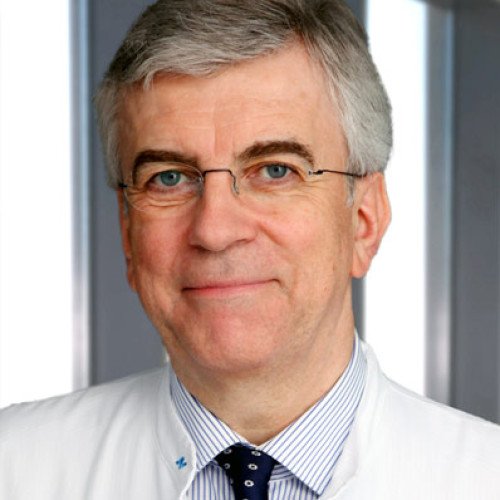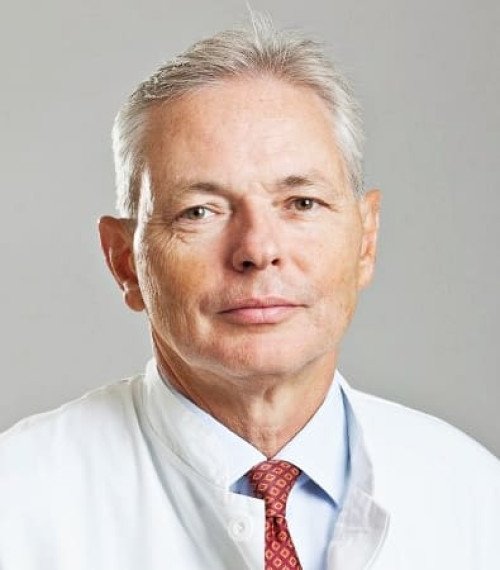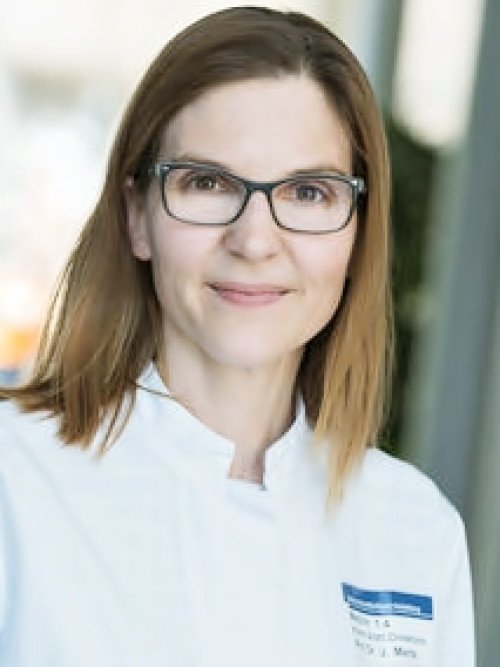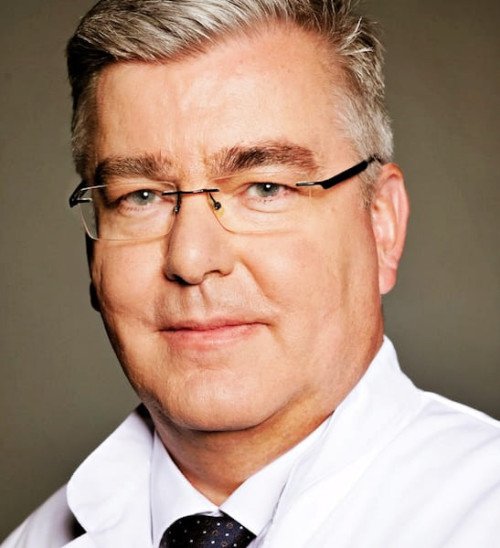The Department of Gastroenterology is an important department of medicine that studies the health of the digestive system, often known as the gastrointestinal (GI) tract. Gastroenterologists diagnose and treat disorders affecting the esophagus, stomach, intestines, liver, pancreas, gallbladder, and bile ducts.
Gastroenterology covers a broad spectrum of diseases and disorders, such as gastrointestinal malignancies, inflammatory bowel disease, liver diseases, and functional GI disorders. The department aims to deliver complete, patient-centered care that includes accurate diagnosis, effective treatment, and preventative measures.
Key Areas of Focus
1) Common gastrointestinal disorders:
Esophagitis: Gastroesophageal Reflux Disease (GERD) is a chronic disorder in which stomach acid rushes back into the esophagus, producing symptoms such as heartburn and regurgitation. GERD may cause problems such as esophagitis, Barrett's esophagus, and esophageal cancer.
Inflammatory Bowel Disease (IBD): Crohn's disease and ulcerative colitis are two conditions that cause persistent inflammation of the gastrointestinal system. Symptoms may include stomach discomfort, diarrhea, weight loss, and weariness. These problems may result in serious consequences, such as intestinal blockage and colorectal cancer.
Irritable Bowel Syndrome (IBS): A functional GI condition with symptoms such as stomach discomfort, bloating, and abnormal bowel habits (diarrhea or constipation). IBS may have a substantial influence on one's quality of life, although it does not permanently harm the gastrointestinal system.
Celiac disease: A form of autoimmune disease in which gluten causes damage to the small intestine. Symptoms include diarrhea, bloating, and poor nutrition absorption. Long-term consequences may include anemia, osteoporosis, and a higher risk of some malignancies.
Liver illnesses: include hepatitis, fatty liver disease, cirrhosis, and cancer. Symptoms might include jaundice, tiredness, and stomach discomfort. Liver disorders may cause liver failure, requiring a liver transplant.
Pancreatitis: Acute or long-term pancreatic inflammation. The symptoms include severe stomach discomfort, nausea, and vomiting. Chronic pancreatitis may result in diabetes and pancreatic cancer.
Gallbladder Diseases: This includes gallstones and cholecystitis (gallbladder inflammation). Symptoms might include stomach discomfort, nausea, and jaundice. Complications may include gallbladder perforation and biliary tract infections.
Gastrointestinal cancers: These include esophagus, stomach, colorectal, liver, and pancreatic cancer Early detection and treatment in germany are critical to improved outcomes and survival rates.
2) Diagnostic procedures:
Endoscopy: An examination of the gastrointestinal system using a flexible tube and a camera. Types include:
Esophagogastroduodenoscopy (EGD): Examination of the esophagus, stomach, and duodenum.
Colonoscopy: is a procedure that examines the colon and rectum.
Endoscopic Ultrasound (EUS): This procedure combines endoscopy and ultrasound to provide pictures of the digestive system and adjacent tissues.
Capsule Endoscopy: This involves swallowing a tiny capsule with a camera that captures images of the small intestine as it goes through.
Liver Biopsy: A tiny tissue sample is taken from the liver to diagnose liver disease.
Imaging Studies: CT scans, MRIs, and ultrasounds are used to image the GI tract and surrounding organs.
Manometry: Uses pressure and contractions of the esophagus and rectum to identify motility issues.
pH Monitoring: This test measures acid levels in the esophagus to help identify GERD.
3) Treatment Methods:
Medications:
Proton Pump Inhibitors (PPIs) and H2 Blockers: These medications reduce stomach acid production to treat GERD and peptic ulcers.
Anti-inflammatory medications: For IBD, they include aminosalicylates and corticosteroids.
Imunosuppressants and biologics: They are used to treat inflammatory bowel disease and autoimmune liver disorders.
Antibiotics: To treat infections like Helicobacter pylori, which causes peptic ulcers.
Antivirals: These medications treat viral hepatitis.
Antispasmodics: Used to treat IBS by relieving stomach discomfort and cramps.
Lifestyle modifications:
Dietary changes: For celiac disease and IBS.
Weight Management: Lowers the risk of GERD, fatty liver disease, and gallstones.
Alcohol and tobacco cessation: To enhance liver health and lower the risk of gastrointestinal malignancies.
Surgery Interventions:
Laparoscopic Surgery: Used for gallbladder removal (cholecystectomy), appendectomy, and treatment of some gastrointestinal malignancies.
Bariatric Surgery: Used for treating obesity-related conditions including GERD and chronic fatty liver disease.
Resection: The removal of a portion of the intestine to treat Crohn's disease and colorectal cancer.
Liver transplantation: Used to treat end-stage liver disease and liver cancer.
Multidisciplinary care:
Gastrointestinal: Gastroenterologists are physicians who specialize in the diagnosis and treatment of gastrointestinal problems.
Surgeons: They perform surgical techniques to treat gastrointestinal disorders.
Radiologists: They do imaging tests and interventional treatments.
Pathologists: Use biopsy sample analysis to make medical diagnoses.
Nurses and Support Staff: Offer patient care, education, and assistance.
Dietitians: Provide management and guidance on diet.
Psychologists and counselors: Help people cope with chronic illnesses.
Preventive Measures and Patient Education
The Department of Gastroenterology emphasizes preventive care and patient education.
1) Screening and Early Detection:
Colorectal: Colonoscopy is recommended for persons over 50 and those with a family history of colorectal cancer.
Hepatitis Screening: For those at risk of viral hepatitis.
Regular check-ups: For those with chronic liver disease or a history of gastrointestinal cancer.
2) Patient Education:
Diet and Nutrition: The necessity of eating a well-balanced diet rich in fiber and low in processed foods to avoid GI issues.
Lifestyle Options: Stop smoking, limit alcohol use, and maintain a healthy weight.
Symptom Awareness: Teaching patients how to recognize the signs of GI diseases so that they may be treated early.
Research and Innovation in Gastroenterology
Research and technological breakthroughs continue to improve the discipline of gastroenterology.
1) Genetics and Molecular Research:
Personalized Medicine: Treatments based on individual genetic profiles.
Biomarkers: Identifying biomarkers for early detection and monitoring of gastrointestinal disorders.
2) Endoscopic Innovations:
Advanced Endoscopy: Techniques include confocal laser endomicroscopy (CLE) and narrow-band imaging (NBI) to improve visibility and diagnosis.
Endoscopic Submucosal Dissection (ESD): Used to remove early-stage malignancies.
3) Minimally Invasive Surgery:
Robotic Surgery: Improves accuracy and recuperation times.
Normal Orifice Transluminal Endoscopic Surgery (NOTES): Natural bodily holes are used for surgical treatments, resulting in shorter recovery times and less scarring.
4) Telemedicine:
Remote consultations: Patients in remote areas may now get specialized treatment.
Digital Health Tools: Apps and gadgets for tracking symptoms and managing chronic illnesses.
Gastroenterologists treat a variety of disorders, including GERD, IBD (Crohn's disease and ulcerative colitis), IBS, celiac disease, liver diseases (such as hepatitis and cirrhosis), pancreatitis, gallbladder disease, and gastrointestinal malignancies.
A colonoscopy involves inserting a flexible tube with a camera into the rectum to inspect the colon. The operation normally lasts 30-60 minutes. Patients are sedated for comfort, and it is critical to follow pre-operative instructions such as fasting and bowel preparation.
Preventive methods include eating a well-balanced diet rich in fiber, avoiding smoking and excessive alcohol use, remaining physically active, and getting regular tests like colonoscopies. Hepatitis A and B vaccinations may also help prevent liver illness.
Jaundice, or yellowing of the skin and eyes, exhaustion, stomach pain, abdominal and leg swelling, dark urine, and pale stool are some of the signs of liver disease. If you have any of these symptoms, please seek medical attention.
IBD treatment consists of a mix of pharmaceuticals (anti-inflammatory agents, immunosuppressants, and biologics), dietary changes, and, in certain cases, surgery. Regular monitoring and follow-up treatment with a gastroenterologist are necessary for managing the illness and avoiding complications.
Experience the difference that expertise and compassion can make. Meet our exceptional team of experienced doctors, and trust us to provide you with the best in healthcare.

Gastroenterology
Medical Director Department Gastroenterology
Frankfurt am Main


Gastroenterology
Chief Physician of Internal Medicine and Gastroenterology
Berlin


Gastroenterology
Specialist in Internal Medicine and Gastroenterology
Berlin

Gastroenterology
Clinic Director Department Gastroenterology
Munich / München



Gastroenterology
Clinic Director Department Gastroenterology
Bonn



Gastroenterology
Specialist for Gastroenterology and Endocrinology
Munich / München




Gastroenterology
Clinic Director Department Gastroenterology
Wuppertal

Gastroenterology
Chief Physician Department Gastroenterology
Düsseldorf

Gastroenterology
Medical Director Department Gastroenterology
Frankfurt am Main

Gastroenterology
Chief Physician Department Gastroenterology
Essen

.webp)
 (1).webp)

.webp)
 (1).webp)


.webp)
 (1).webp)

.webp)
 (1).webp)
